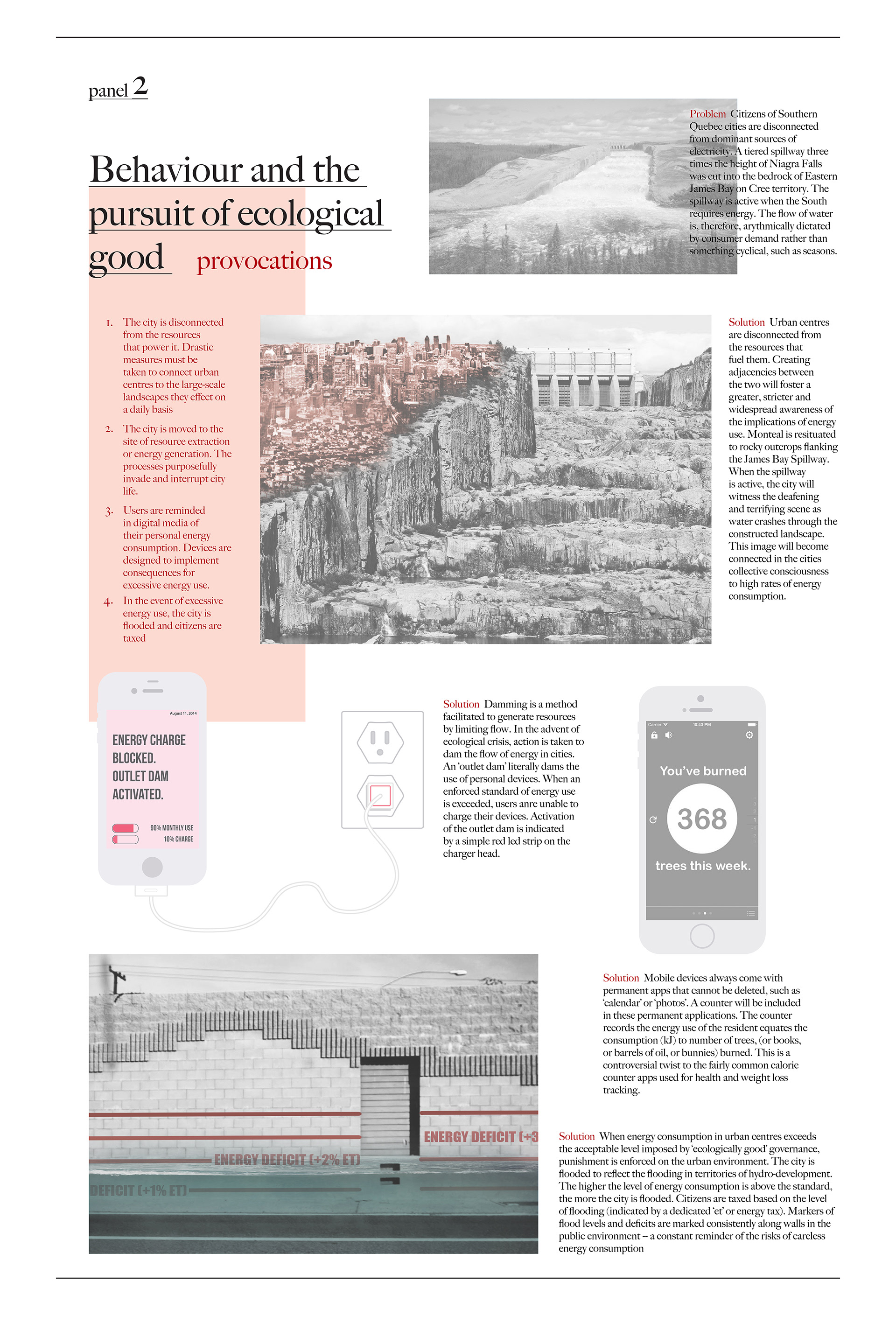On Why to Improve Nature
University of Waterloo
School of Architecture
Graduate Elective
Seminar Course
School of Architecture
Graduate Elective
Seminar Course
Teaching Faculty: Fionn Byrne
Description:
Not explicitly, but implicitly the field of landscape architecture often aligns itself with a moral position relative to a cultural construct of nature. Projects prefigure nature as in a precarious state of decline by accessing common grand narratives such as climate change, mass species extinction, environmental catastrophe or any number of smaller scale concerns from biodiversity loss, habitat destruction, to toxic contamination. Within the confines of the project the design as solution then seeks to organize programmatic requirements within a system that also improves upon the afore defined failures of nature. In so doing the work is placed beyond critique, for to question such a project would be interpreted to mean one is also taking a position against nature, or worse, that by extension one is taking a morally objectionable stance on a larger social issue. It is then the aim of this course to provide the environment where students can experiment with critiquing popularly accepted definitions of nature; to learn about landscape architecture and ecology by exploring the boundary of what it is not.
Interrogating projects within this framework is a revealing exercise, for to push arguments to their logical extremes we are able to witness the emergence of an accretive and socially produced definition of nature which (as we will see) informs the work of landscape architects. While conducting this critical reflection on the field the goal of this seminar will be to ask if the work of landscape architecture can be separated from a set of moral imperatives or if nature and ecology are necessarily moral constructs. To explore this question, students will engage in a series of debates around the most pressing contemporary issues to the discipline. The weekly issues will be organized into the following four thematic categories: Urban Ecology, Sovereignty, Rehabilitation, and Control.




CREDITS
1-4. Amrit Phull.